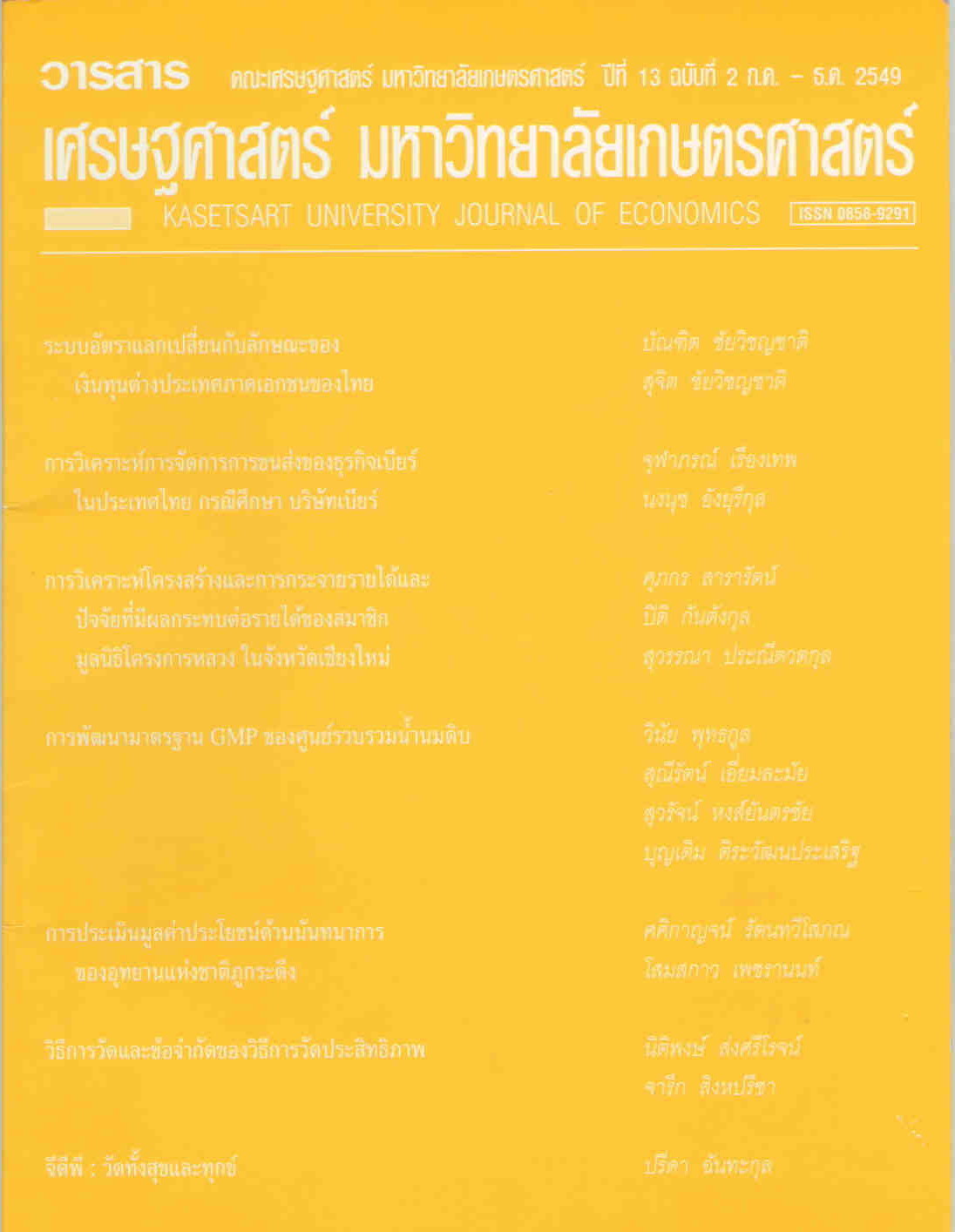Exchange Rate Regime and the Characteristics of Private Foreign Capital Flows in Thailand
Main Article Content
Abstract
Abstract
The vulnerability of foreign capital flows reversal, overlending and hot capital flows, had led the Thai economy to face with the averse effects of foreign capital flows in the end of 1990s, including the switching of foreign exchange system, and economic recession. However, the new exchange rate system may not guarantee that the vulnerability of foreign capital flows reversal and hot characteristics have been disappeared. Thus, this study is aimed at analyzing the characteristics of foreign capital flows in Thailand after the turmoil period. By employing the method of Cleassens et al. (1995) and Paitoon et al. (2001) together with the calculating of Capital Flows Thermometer (CFT), the results of this study indicate that foreign capital flows in Thailand under the managed-floated exchange rate regime still have the same characteristics as they had been during the period of fixed exchange system. This implies that foreign capital flows in Thailand may be volatile by their nature. Their characteristics should not depend on whether the system of foreign exchange is fixed of managed-floated. As a result, Thai economy still has an opportunity to face with the averse effect of foreign capital flows. Therefore, monetary authorities should monitor on the movement of foreign capital flows closely in order to cope the possible averse effects of foreign capital flows in the future.
Keywords: Exchange Rate Regime, Foreign Private Capital Flows
Article Details
The paper is published under CC BY-NC-ND, in which the article is freely downloaded and shared in its original form non-commercially and its citation details are identified.


